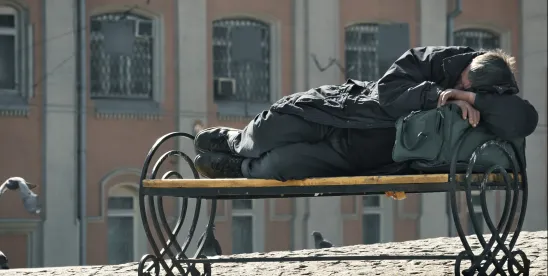Until recently, local policies on homelessness have been guided by two controversial rulings from the Ninth Circuit Court of Appeals: Martin v. Boise (9th Cir. 2019) 920 F.3d 584 and Johnson v. City of Grants Pass (9th Cir. 2022) 50 F.4th 787.[1] However, the Supreme Court’s decision in City of Grants Pass v. Johnson(2024) 603 U.S. ____, is likely to transform local jurisdictions’ policy approaches to managing homelessness. In a 6-3 decision, the Supreme Court upheld the city’s ban on camping and parking overnight on public property.
By way of background, in Martin, the Ninth Circuit held that the Eighth Amendment’s restriction against cruel and unusual punishment barred cities from imposing criminal penalties for violations of public-camping ordinances whenever the number of homeless individuals exceeds the number of “practically available” shelter beds in a jurisdiction. In Johnson, the Ninth Circuit expanded on Martin and held that a city cannot enforce its camping ban or impose fines or civil penalties unless the city has enough shelter beds for its entire population. Since then, affected cities and states have widely criticized these two Ninth Circuit rulings, which effectively blocked the enforcement of local ordinances prohibiting or regulating camping and sleeping outdoors.
In the Supreme Court’s decision in Johnson, the Court rejected the Ninth Circuit’s rulings and held that ordinances prohibiting camping, overnight parking, or sleeping outdoors do not violate the Eighth Amendment’s protections against cruel and unusual punishment because these ordinances regulate “conduct” and “actions”, rather than “mere status.”
The Court focused on the practical implications of Martin and Johnson, finding that the Ninth Circuit created an unworkable and confusing test to evaluate public camping ordinances, based on subjective and vague determinations of who is “involuntarily” homeless. The Court also criticized judicial injunctions prohibiting the enforcement of public camping ordinances, finding that these determinations are “public policy responses” best handled by local governments and the legislature (not courts).
In doing so, the Court agreed with local jurisdictions that complained that the Ninth Circuit inappropriately limited available policymaking tools and “undermined” local efforts to address homelessness. The Court emphasized that local governments have “broad power” over the substance and enforcement of their laws and must be afforded “wide latitude” and “flexibility” to address homelessness.
Although the Court’s ruling authorizes the enforcement of public camping ordinances, it does not grant unfettered power to local jurisdictions. The Court acknowledges that public camping ordinances could still implicate other constitutional concerns, including potential violations under the Due Process Clause. The Court further notes that local governments are not required to adopt public camping ordinances, and may choose to narrow such laws by imposing relevant time, place, and manner restrictions.
Even with these limitations, the Court’s decision is likely to significantly alter the future of local policies on homelessness, especially throughout California. Local governments are now authorized to take more aggressive actions to enforce existing ordinances (or enact new ones) prohibiting or otherwise regulating overnight camping and parking on public property. Ordinances that include relevant time, place and manner restrictions (e.g., regulating when, where, and how people sleep in public) are likely to be particularly insulated from constitutional challenges.
We will continue to monitor updates to local policies on the homeless in response to this decision and provide updates as they become available.
FOOTNOTES
[1] See prior article here.




 />i
/>i

